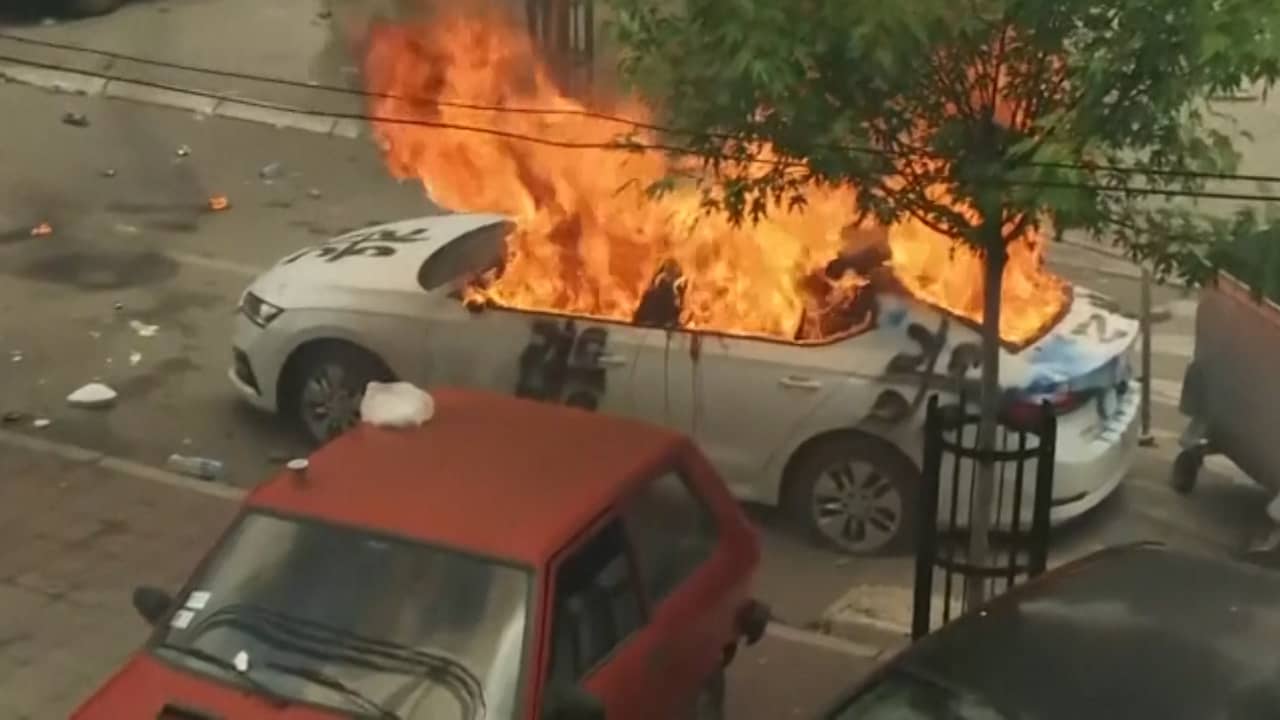Prime Minister Mark Rutte will pay a two-day visit to Kosovo and Serbia on Monday. With his Luxembourg counterpart, he will meet with the leaders of the two neighboring countries on the rise in tensions. What is going on?
First a brief explanation, because the conflict between Kosovo and Serbia goes back years. Kosovo was once part of Serbia. After a bloody conflict, Kosovo became independent in 2008, but Serbia does not recognize this independence. The European Union and the United States recognize Kosovo as a country.
Of the 1.8 million inhabitants of Kosovo, 92% are ethnic Albanians and 6% are ethnic Serbs. Most of the latter group live in northern Kosovo. They do not recognize the administration of Kosovo, which means that they regularly clash with the authorities.
Never peace, but recently more tensions
There has never been real peace between Serbia and Kosovo, but the unrest has intensified further over the past year. For example, at the end of last year, there was a fight over license plates, because Kosovo had decided that plates issued in Serbia would be banned.
The number of Kosovar police in the north of the country has also increased (causing tension) and there have been a number of attacks against Kosovo Serbs. At the end of June, Serbia threatened to intervene militarily to protect ethnic Serbs in Kosovo.
Protests against new mayors
Tensions rose in May when Albanian mayors were installed in four municipalities in northern Kosovo. Most Kosovo Serbs live in these municipalities. They had boycotted the elections (turnout was below 3.5%), allowing the Albanian candidates to win.
The European Union and the United States, among others, called on Kosovo not to install the mayors because of the tensions, but it happened anyway. This led to large protests. Serb Kosovars demanded the departure of the mayors, saying they could not represent them properly. They also demanded the departure of the Kosovar police from northern Kosovo.
Mayors had to be escorted to their offices by special police units. NATO blue helmets have also been deployed to protect town halls. Around 30 NATO soldiers were injured in clashes between police and Kosovo Serbs. They suffered broken bones and burns, among other things. 52 protesters were also injured. Germany and France have called on Kosovo to hold new elections.
 1:00
1:00Rutte first in Serbia, then in Kosovo
The visit of Rutte and his Luxembourg counterpart Xavier Bettel will begin on July 3 in the Serbian capital Belgrade. Talks are planned there with President Aleksandar Vučic and Prime Minister Ana Brnabic. Discussions are also taking place with organizations committed to press freedom and the rights of the LGBTQ+ community.
Rutte and Bettel are in Pristina, the capital of Kosovo, on July 4. They will be received there by President Vjosa Osmani-Sadriu and Prime Minister Albin Kurti. Talks with NGO representatives are also on the agenda in Kosovo.

“Infuriatingly humble social media ninja. Devoted travel junkie. Student. Avid internet lover.”
 DodoFinance Breaking News Made For You!
DodoFinance Breaking News Made For You!